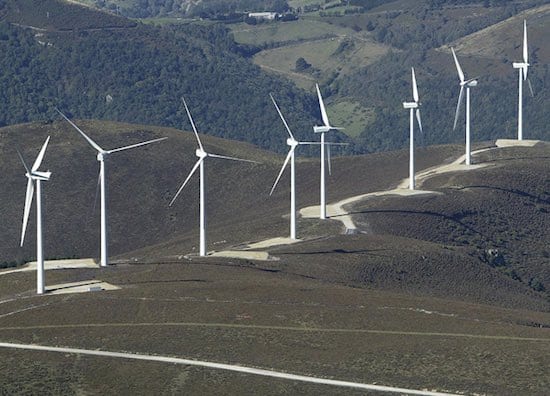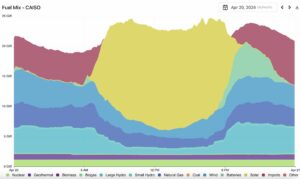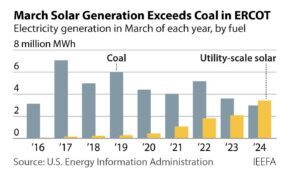Spain is on track to generate more than half of its power from renewable energy sources in 2023, according to independent research firm Rystad Energy, making it the first of the top five European countries by power demand to reach the milestone.
A new Rystad Energy report forecasts that Spain will surpass the 50% average mark in 2023, beating out neighbouring powerhouses France, Germany, Italy, and the UK.
As one of Europe’s long-time renewable energy leaders, Spain has made continued and substantial investments in solar and wind capacity over the last decade. An early adopter of onshore wind, the technology now accounts for 20% of the country’s power generation.
Spain has also continued investing in solar PV, while hydropower – which used to be the country’s largest source of renewable energy – now accounts for approximately 10% of its total generation today.
Conversely, Spain has made significant strides in phasing out coal-fired generation, leaving natural gas as the primary source of its fossil fuel-powered generation. Spain has also targeted a phase-out of its nuclear power plants for 2035. It expects to reach nearly 80 per cent renewables by 2030.
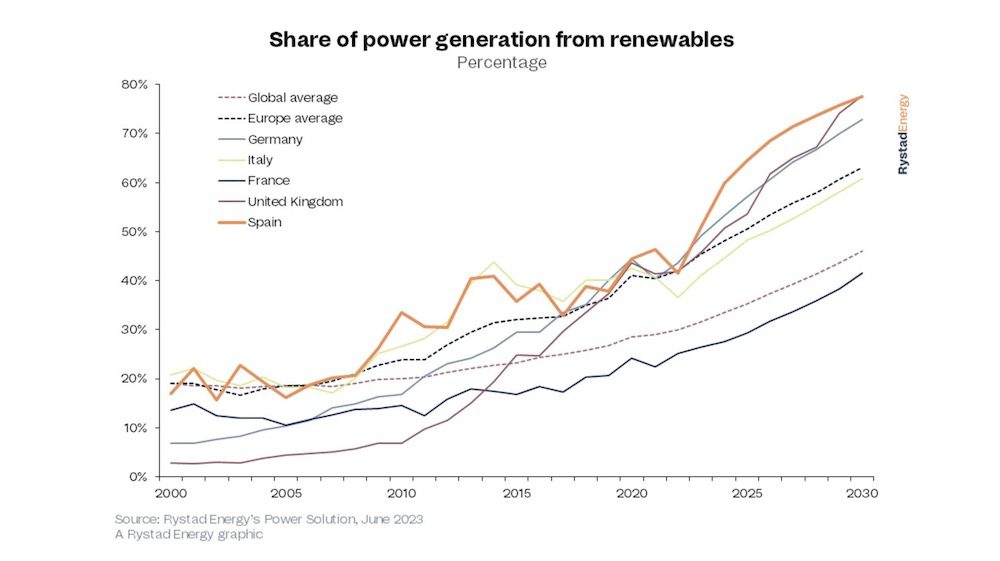
“Spain’s renewable energy achievements come as no surprise given its history of strategic investments and early adoption,” said Fabian Ronningen, senior renewables and power analyst at Rystad Energy.
“Its progress should be a clear benchmark for counterparts and serve as testament to the attainability of a cleaner energy future.”
And while Spain is behind Germany in terms of both onshore wind and solar PV capacity, Rystad Energy predicts that “Spain’s trajectory in solar and wind energy exhibits remarkable growth prospects for the coming years.”
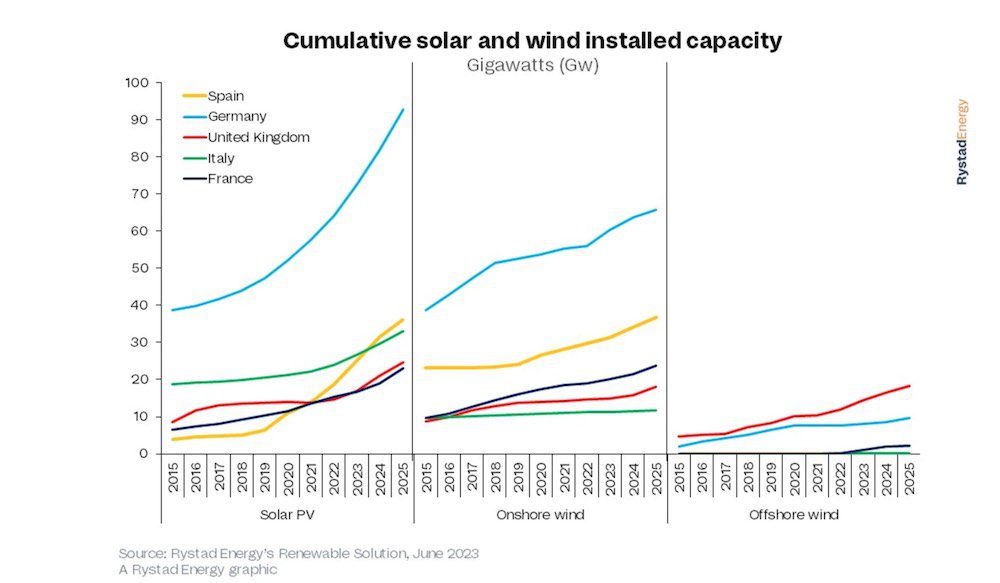
The direct of result of Spain’s renewable energy success is lower consumer prices, “a critical achievement after the sky-high prices of 2022,” according to Rystad Energy.
The steady increase of renewable energy’s share has lowered spot prices on average, and though interconnection capacity with the rest of continental Europe is limited, Spain’s prices this year have been significantly lower than its northern neighbour, France.
Average power prices in France have been 34% higher than those in Spain due to a variety of factors, including Spain’s transition from being one of Europe’s highest-priced spot markets to one of its lowest, and France’s own well documented problems with its nuclear fleet.

